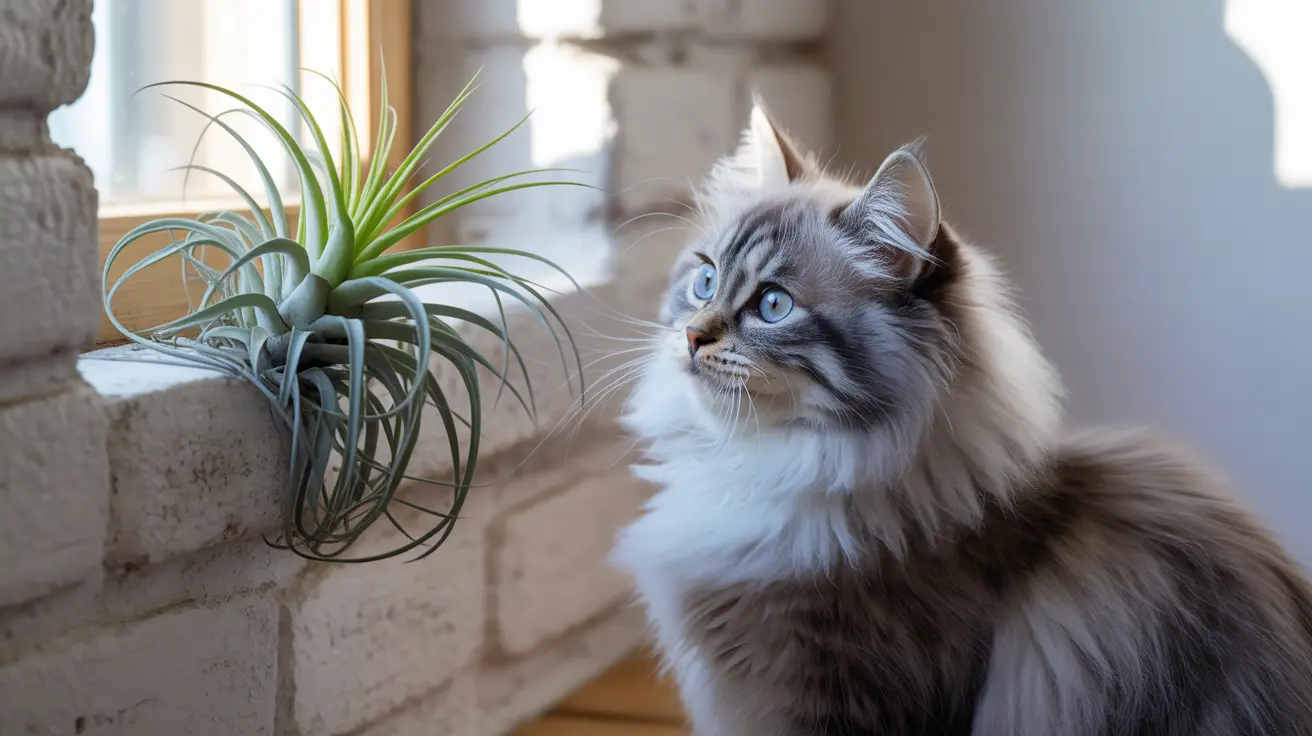Understanding Air Plants and Cat Safety
Air plants, belonging to the genus Tillandsia, are epiphytic plants that grow without soil. These fascinating plants absorb nutrients and moisture directly from the air through specialized structures called trichomes. Unlike many common houseplants, air plants have been extensively studied and confirmed to be non-toxic to cats.
This means that if your curious cat takes an exploratory nibble, you won't need to worry about poisoning or severe adverse reactions. However, this doesn't mean air plants are entirely without risk.
Physical Risks and Considerations
While air plants aren't toxic, they can present some physical challenges:
- Sharp leaf edges that might cause mouth irritation
- Potential choking hazards if large pieces are swallowed
- Possible digestive upset from plant fiber consumption
These risks are generally minor and can be effectively managed through proper placement and monitoring.
Safe Placement Strategies
To minimize any potential issues between your cats and air plants:
Elevated Locations
- Mount plants on walls above cat-reaching height
- Use hanging displays or elevated shelves
- Consider window-mounted displays
Protected Displays
- Place air plants in terrariums or glass globes
- Create dedicated plant areas in cat-free rooms
- Use decorative barriers that maintain airflow while limiting access
Monitoring and Maintenance Tips
Even with safe placement, regular monitoring helps ensure both plant and pet safety:
- Inspect plants weekly for signs of damage or tampering
- Remove any fallen pieces promptly
- Trim damaged leaves to prevent temptation
- Watch for any changes in your cat's behavior around plants
Signs of Plant Interaction to Watch For
While air plants aren't toxic, you should still monitor your cat if they interact with the plant. Watch for:
- Pawing at mouth or excessive drooling
- Temporary loss of appetite
- Mild gastrointestinal upset
- Coughing or difficulty swallowing
Frequently Asked Questions
Are air plants (Tillandsia) safe or toxic to cats if they nibble on them?
Air plants are non-toxic to cats. While nibbling won't cause poisoning, it's best to discourage this behavior to avoid physical irritation or choking risks.
What symptoms should I watch for if my cat chews or eats parts of an air plant?
Watch for drooling, difficulty swallowing, or mild digestive upset. These symptoms are usually temporary and related to physical irritation rather than toxicity.
How can I prevent my cat from injuring itself or choking on air plants?
Place air plants out of reach, use protective displays, and remove any fallen pieces promptly. Consider mounting plants high on walls or using hanging displays.
Are air plants safer for cats compared to other common houseplants?
Yes, air plants are among the safer houseplant options for cat owners. Unlike many common houseplants that contain toxic compounds, air plants pose no poisoning risk.
What are the best ways to display air plants in a cat-friendly home?
Use elevated locations like wall-mounted displays, hanging planters, or high shelves. Terrariums and protected displays can also work well while maintaining the plant's aesthetic appeal.
Conclusion
Air plants offer a safe, attractive option for cat owners looking to add greenery to their homes. While these plants aren't toxic to cats, thoughtful placement and monitoring help ensure both plant and pet stay healthy and happy. With proper precautions, you can successfully maintain these unique plants even in a home with curious felines.






